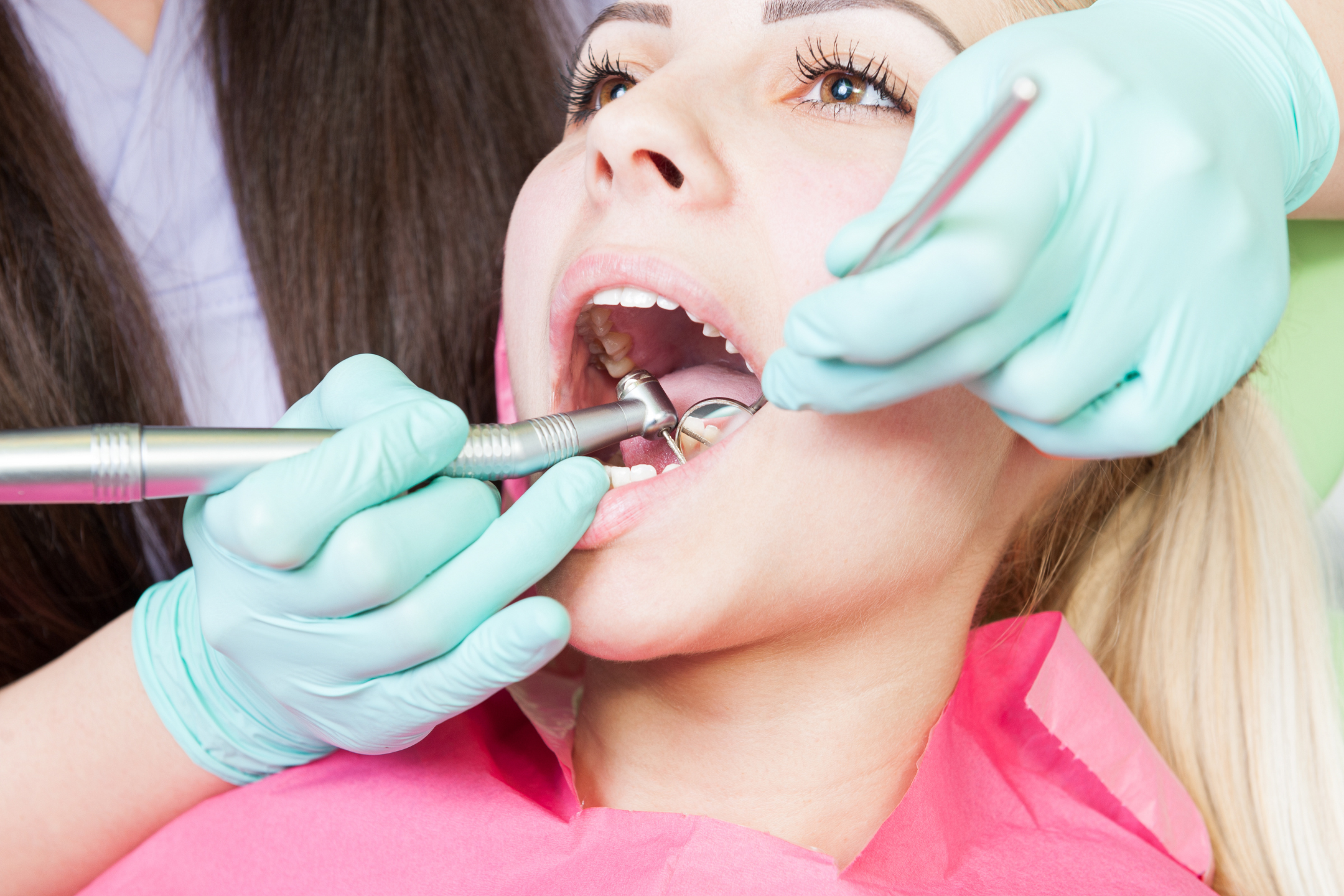Why is dental scaling important?
Professional dental scaling is perhaps one of the most basic and important dental treatments.
After eating and drinking, dirt, called plaque, sticks to the teeth and soon turns into plaque. To this plaque, minerals from saliva adhere, which solidify into tartar.
Tartar sticks in the interdental spaces, under the gums and in places that are harder to clean and unfortunately, toothbrushes are less likely to remove it. To remove them, you need professional tools and a dental hygienist who can not only get rid of the tartar, but also give you useful oral care advice. So it is important to visit your dental hygienist at regular intervals to check the condition of your teeth.
What is the procedure for dental scaling at Evergreen Dental?
When you first come to our dentistry, you will first be given an anamnesis questionnaire and a consent form to fill out, which will inform you about the dental hygiene treatment process and what to do after the examination.
When you sit in the chair, our dental hygienist will first review your dentition, ask you a few questions about your health and get to work.
We use a depurator to remove your tartar without damaging the tooth enamel, using a vibrating motion. The depurator does not damage tooth enamel. Next comes the bead sand blasting. These steps help remove food and bacteria residues stuck on and between teeth and help get rid of yellowish stains.
At the end of the treatment, the surface of the teeth is polished smooth using paste, special brushes and rubber brushes to reduce the chance of plaque re-sticking. This will make the surface of your teeth smoother and whiter thanks to a thorough cleaning.
Once the treatment is complete, our dental hygienists will teach you how to maintain good oral hygiene, how to clean your teeth and show you the small tools that are recommended (e.g. interdental toothbrush, dental floss).

Frequently asked questions
Where can tartar form?
In addition to our own teeth, tartar can also build up on dentures, restorations, crowns and bridges.
How often do I need to have plaque removed?
The need for dental hygiene treatment depends on the individual. The composition of the saliva in the mouth and the deposits in the interdental spaces may justify dental hygiene treatment, but it may also depend on individual cases such as
- Predisposition to tartar formation: some people develop tartar more quickly than others. This predisposition can be influenced by genetics, diet, lifestyle and certain diseases such as diabetes or thyroid disease.
- Oral hygiene habits: Careful oral care routines help prevent tooth decay. In addition to regular brushing and flossing, regular dental check-ups and cleanings are important.
- Having dentures: there is a greater chance of increased tartar build-up if you have any kind of dentures. For this reason, these teeth should be cleaned with particular care and checked regularly by your dentist.
The general recommendation is one or two treatments a year. Your dental hygienist will give you accurate, personalised information about this if you visit regularly for treatment.
The composition of the saliva in the mouth and the deposits in the interdental spaces justify dental hygiene treatment (ultrasonic scaling, pearl sandblasting, polishing), the frequency of which is determined by the dental hygienist.
What diseases can be prevented by regular dental scaling?
Many dental problems can occur as a result of tartar build-up and inadequate oral care.
The most common dental problems that can occur as a result of tartar are tooth decay, bleeding gums, periodontal disease and even bad breath.
At what age should you start having your teeth scaled?
It is recommended to start tartar removal at the age of 10/12 years, as tartar can appear at this age. The susceptibility to tartar formation varies from person to person.
Calculus removal helps prevent tooth decay, gingivitis and periodontal disease. That’s why it’s important to teach children to brush their teeth properly from an early age and to take them to the dentist regularly.
How will I feel? Will the treatment be painful?
The treatment is not painful, but of course this also depends on the individual. If you have experienced a lower pain threshold, our dental hygienist can apply a mild anaesthetic numbing gel to reduce the discomfort.
What can I expect after the treatment?
We’ve done a good job if at the end of the treatment you run your tongue over your teeth and feel each small gap, each tooth, separately with your tongue.
The surface of your teeth will feel smooth and pleasant.
You may feel some discomfort for a few days, such as swelling, slight bleeding, tooth sensitivity, but this will go away after a few days.
What is the technique we use at Evergreen Dental to remove plaque?
Ultrasonic depurator.
What are the biggest dangers of neglected oral hygiene?
One of the biggest risks of neglected oral hygiene is tooth decay and gingivitis. If tartar is not removed, the gums begin to recede and atrophy.
